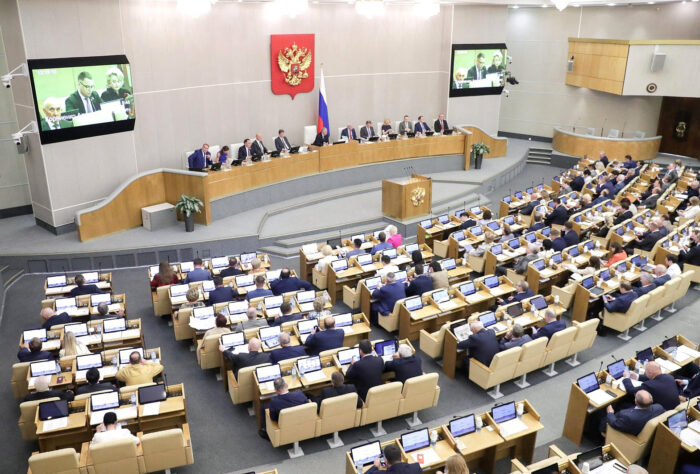On Tuesday, Russian legislators passed preliminary bills that paved the way for the use of digital financial assets (DFAs) in international trade transactions. This strategic move could potentially safeguard some of Russia’s international financial transfers from global oversight.
Russia Approves the Use of Digital Currencies for International Trade

The approval by lawmakers is part of Russia’s broader effort to counteract the impact of potential sanctions threatened by Western countries, particularly the United States, against nations like Turkey and China that facilitate commerce with Russia.
Before these proposals become law, they must receive the nod from both the upper chamber of Russia’s parliament and President Vladimir Putin himself.
Anatoly Aksakov, who leads the financial committee in the State Duma, Russia’s lower house of parliament, highlighted the vulnerabilities of current financial transactions that are processed through the banking system and, thus, are exposed to international scrutiny, including by nations opposed to Russia.
These countries have been exerting pressure on financial institutions, even those from nations friendly to Russia, to prevent them from assisting Russian firms in their dealings with foreign entities.
Don’t miss out the latest news, subscribe to LeapRate’s newsletter
Russia, which faces sanctions from countries criticizing its military actions in Ukraine—referred to by Moscow as a “special military operation”—labels these sanctioning countries as ‘unfriendly’. According to Aksakov, the new legislation would enable transactions to circumvent the traditional banking system, thereby diminishing the leverage of adversarial forces.
The looming threat of U.S. sanctions against entities engaged in business with Russia has already impacted trade between Turkey and Russia, causing disruptions and delays in payments for oil imports and Turkish exports, as reported by sources to Reuters.
Additionally, in January, Russian business figures reported difficulties in conducting financial settlements with Chinese banks, underscoring the need for alternatives to traditional banking channels for international commerce.